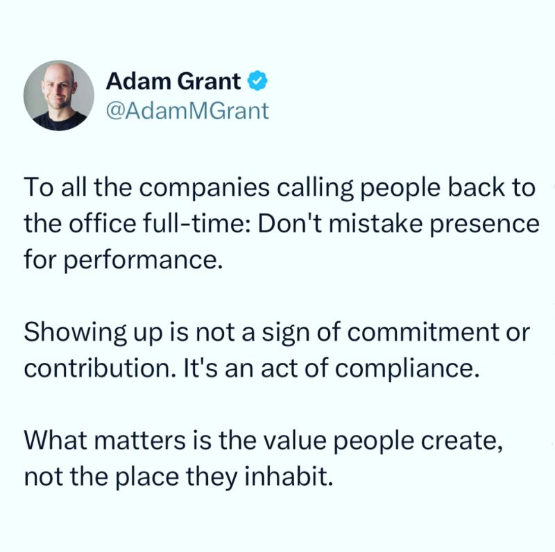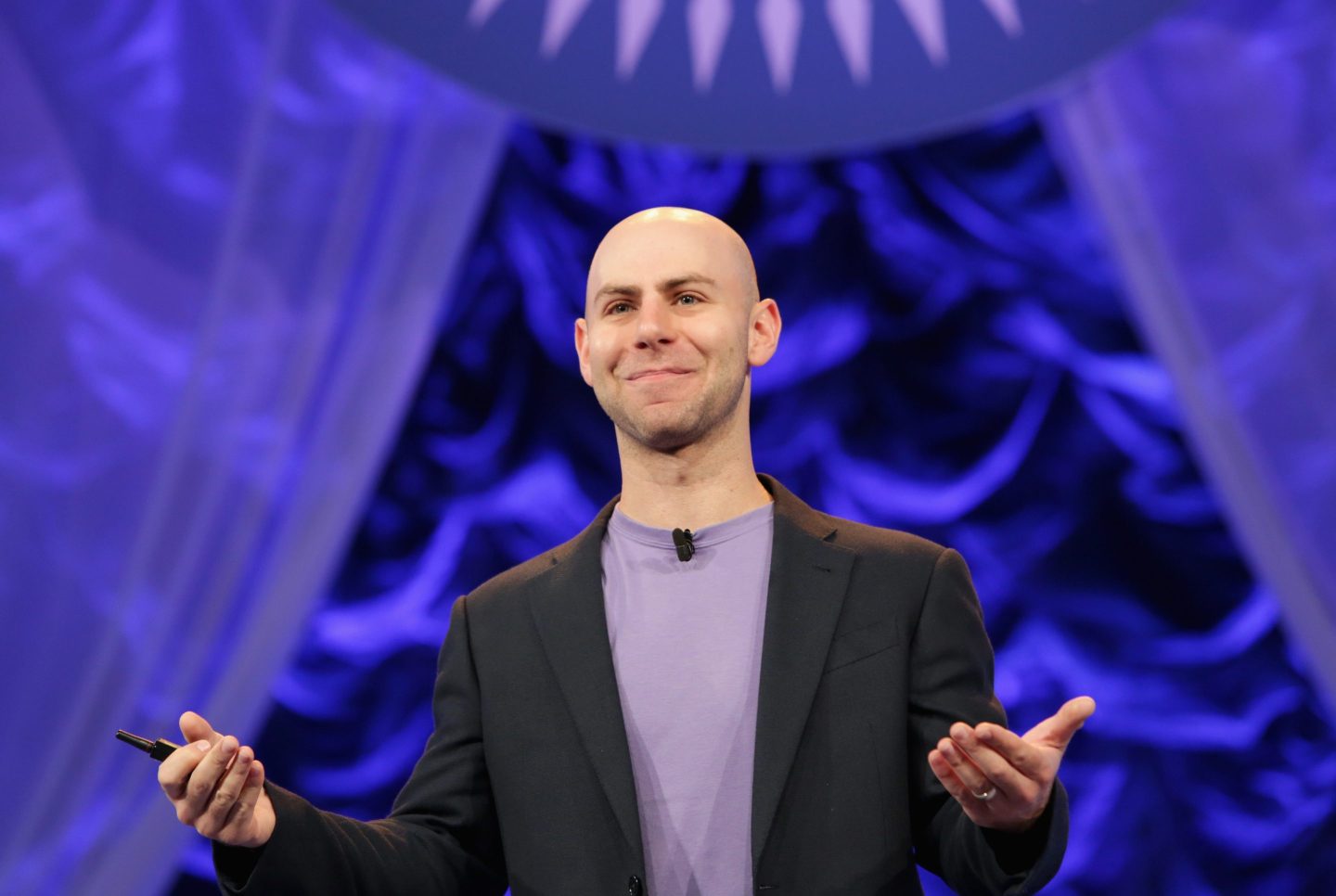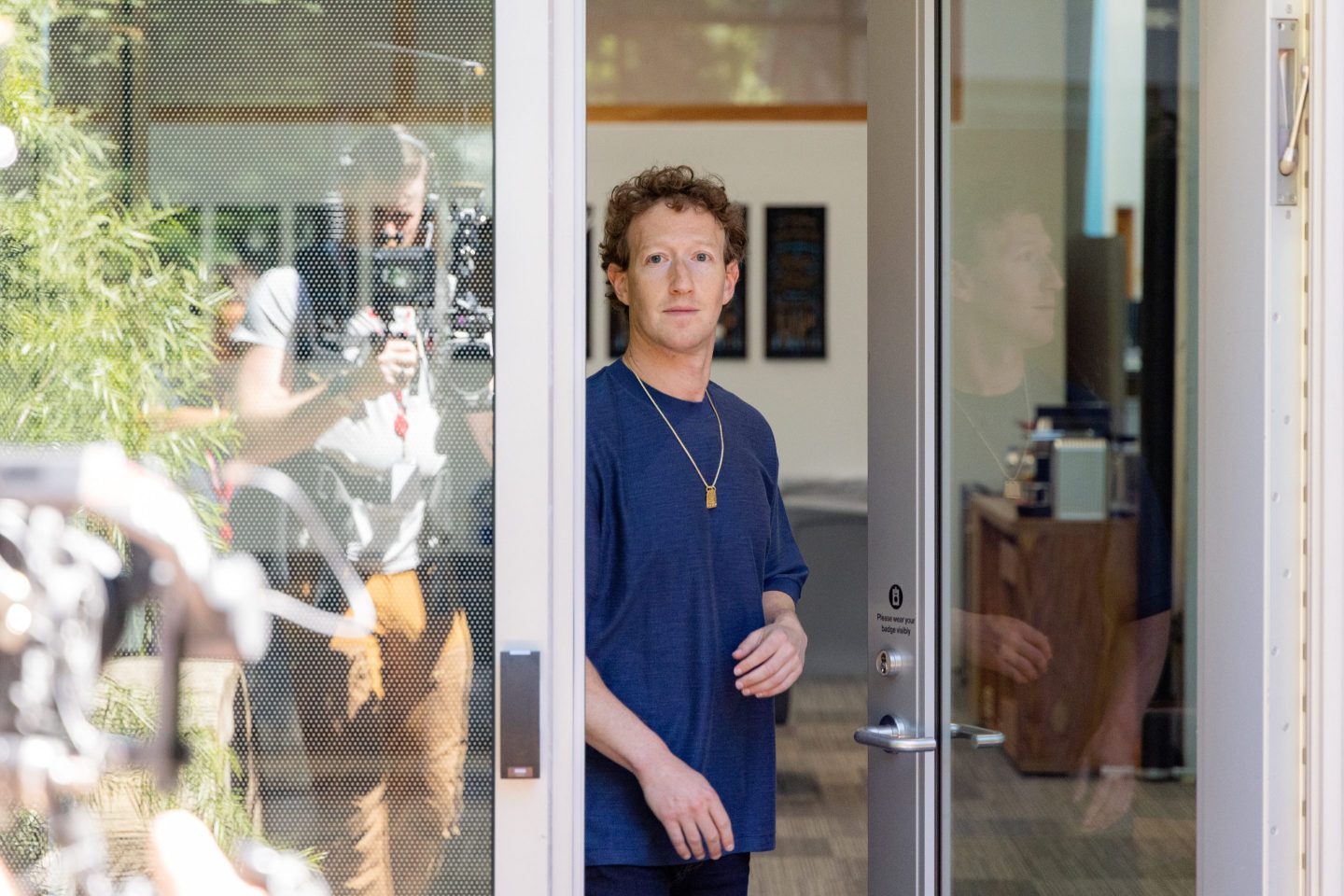Good morning! It’s Paolo again.
Well-known organizational psychologist and Wharton management professor Adam Grant issued a warning to employers fumbling return-to-office plans: “Don’t mistake presence for performance.”
Grant’s quippy refrain—posted via screenshot of a Tweet on LinkedIn—is a poignant reminder that the value of working in person is collaboration and culture-building, two elements of working life that yield long-term results rather than instantaneous productivity gains.

A growing share of managers and employees agree that prolonged remote work can lead to a “slow erosion of the culture of their organization,” Fortune’s Steve Mollman writes. Many CEOs pushing for a return to the office, regardless of industry, tout culture as one of the principal reasons for ending fully remote work. Amazon CEO Andy Jassy says it’s easier to “model, practice, and strengthen” culture in person, and Goldman Sachs CEO David Solomon wants employees back to the office to retain the company’s “cultural foundation.”
While some would argue that’s a commendable reason to get people back to in-person work, an effective return to the office—especially if a company adopts a hybrid model—needs clear guidelines for what it will accomplish. Just last week Airbnb CFO and head of employee experience Dave Stephenson told CHRO Daily that the company’s “Live and Work Anywhere” policy is effective because the home rental company still wants—nay expects—employees to meet in person; it just asks managers to plan those moments with adequate forethought.
“I’d rather people know that they will be in the office for five days next week working on a specific program and getting it done than three random days a week when the benefit of that random interaction is meager,” Stephenson says.
Grant echoed that sentiment in his LinkedIn post. “Showing up is not a sign of commitment or contribution. It’s an act of compliance.” There’s likely some truth to that interpretation, considering Amazon and Apple employees voiced considerable opposition to losing their flexibility without a well-reasoned explanation, including a walkout last month at the latter company.
In closing his post, Grant warned that return-to-office requirements, even if done in the name of culture, are meaningless if they decimate morale. “What matters is the value people create, not the place they inhabit.”
Paolo Confino
paolo.confino@fortune.com
@paolo1000_
Reporter's Notebook
The most compelling data, quotes, and insights from the field.
The gender pay gap for women starts before they even get their first paycheck. Women are overrepresented in unpaid internships, leaving them behind from the start.
“A recent study of students attending four-year colleges and universities in 2022 found that two-thirds of the graduating male respondents received paid internships compared to less than half of women, despite women representing 70% of the 2,140 seniors surveyed.” Bloomberg
Around the Table
A round-up of the most important HR headlines, studies, podcasts, and long-reads.
- UPS's drivers' union walked away from contract negotiations just a month before the current deal expires. CNN
- Women face added bias during performance reviews when they work remotely. Harvard Business Review
- Doordash announced Wednesday that it would allow delivery drivers to be paid hourly. New York Times
- People of color are almost 25% more likely to be ghosted during the interview process, according to recruiting software company Greenhouse. Bloomberg
Watercooler
Everything you need to know from Fortune.
WFH weekend. Fridays in the office are “dead forever,” according to one of New York’s biggest commercial landlords. They’re not sure about Mondays either. —Eleanor Pringle
First impressions. A viral TikTok offers new hires some unorthodox career advice: Don’t give 100% when you first start. —Orianna Rosa Royle
The real Pride headline. The CEO of GLAAD praised companies that stood by their Pride initiatives, saying they were “the real headline,” not those who backtracked on their initial support. Listen time: 35 mins. —Alan Murray and Michal Lev-Ram
This is the web version of CHRO Daily, a newsletter focusing on helping HR executives navigate the needs of the workplace. Sign up to get it delivered free to your inbox.













